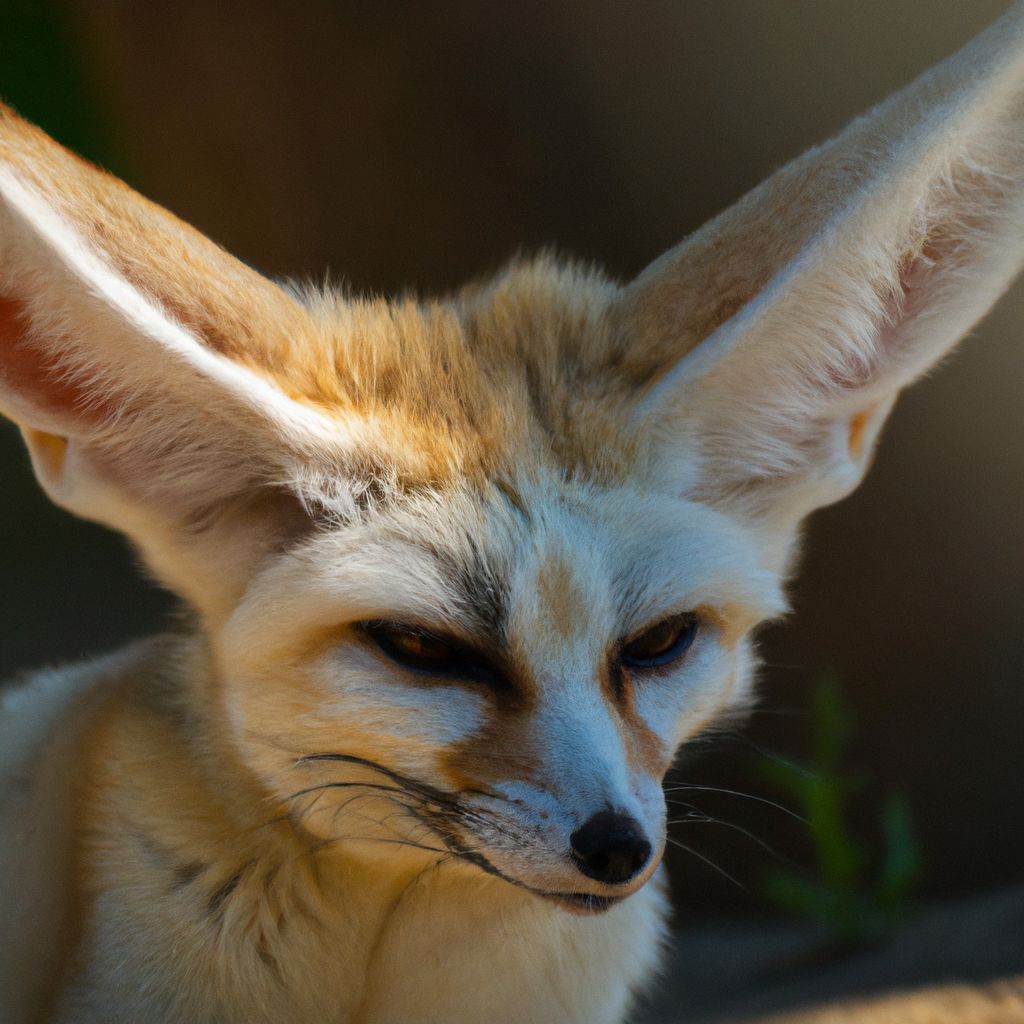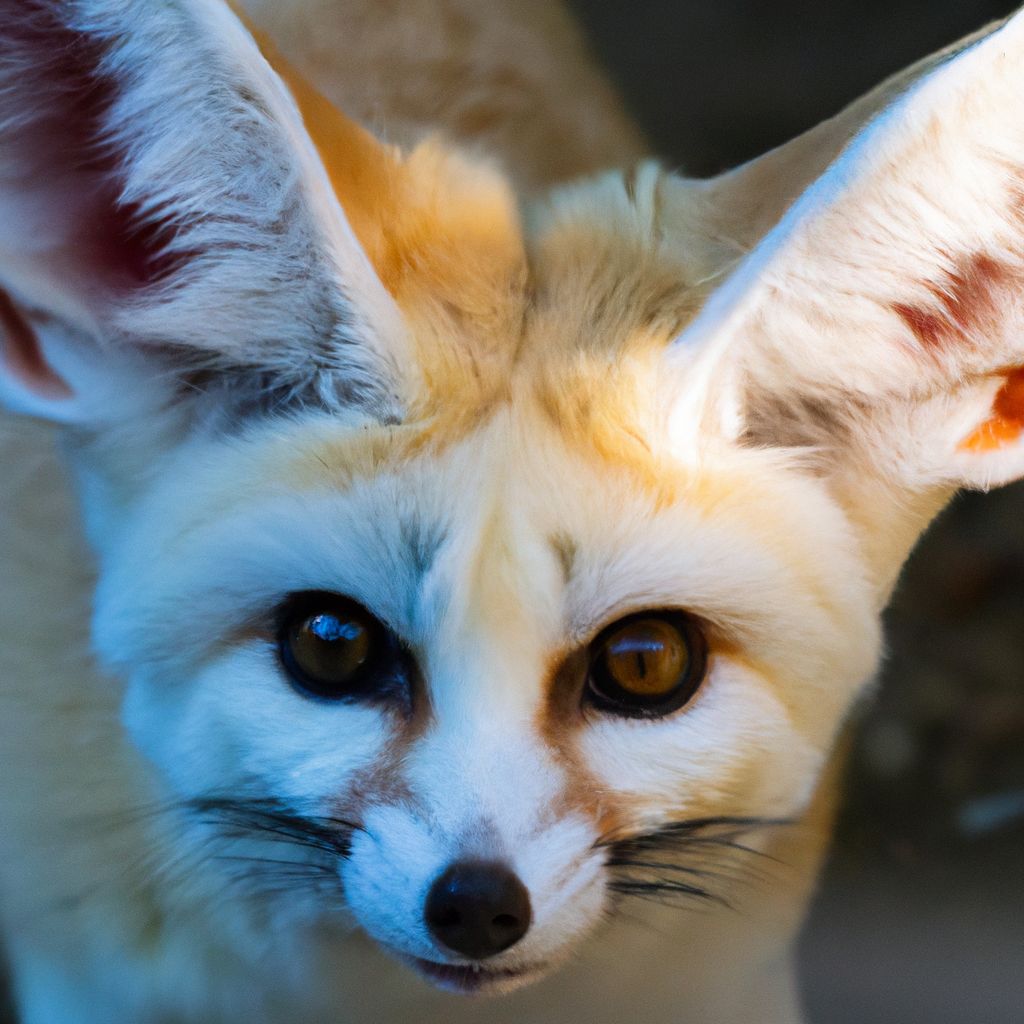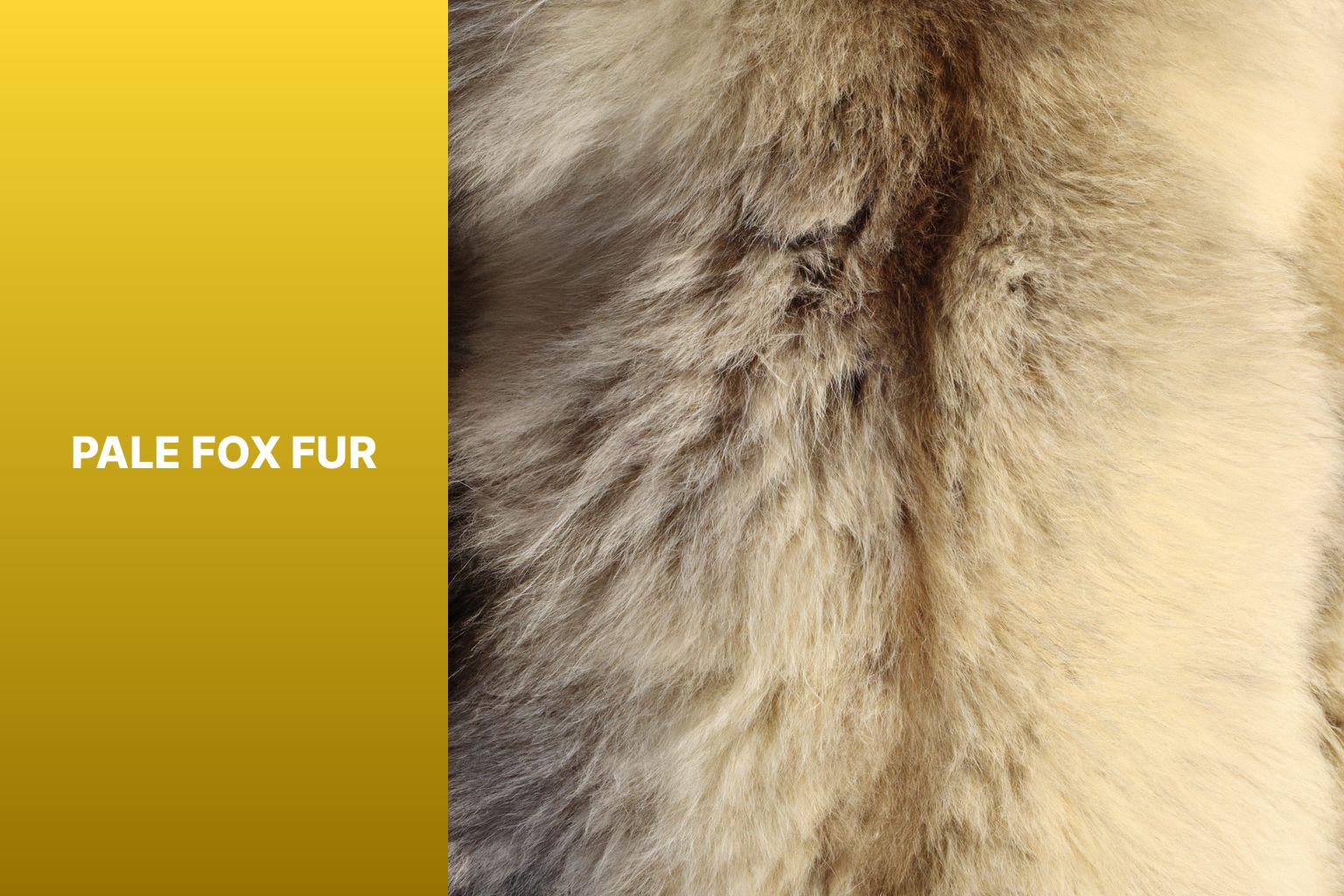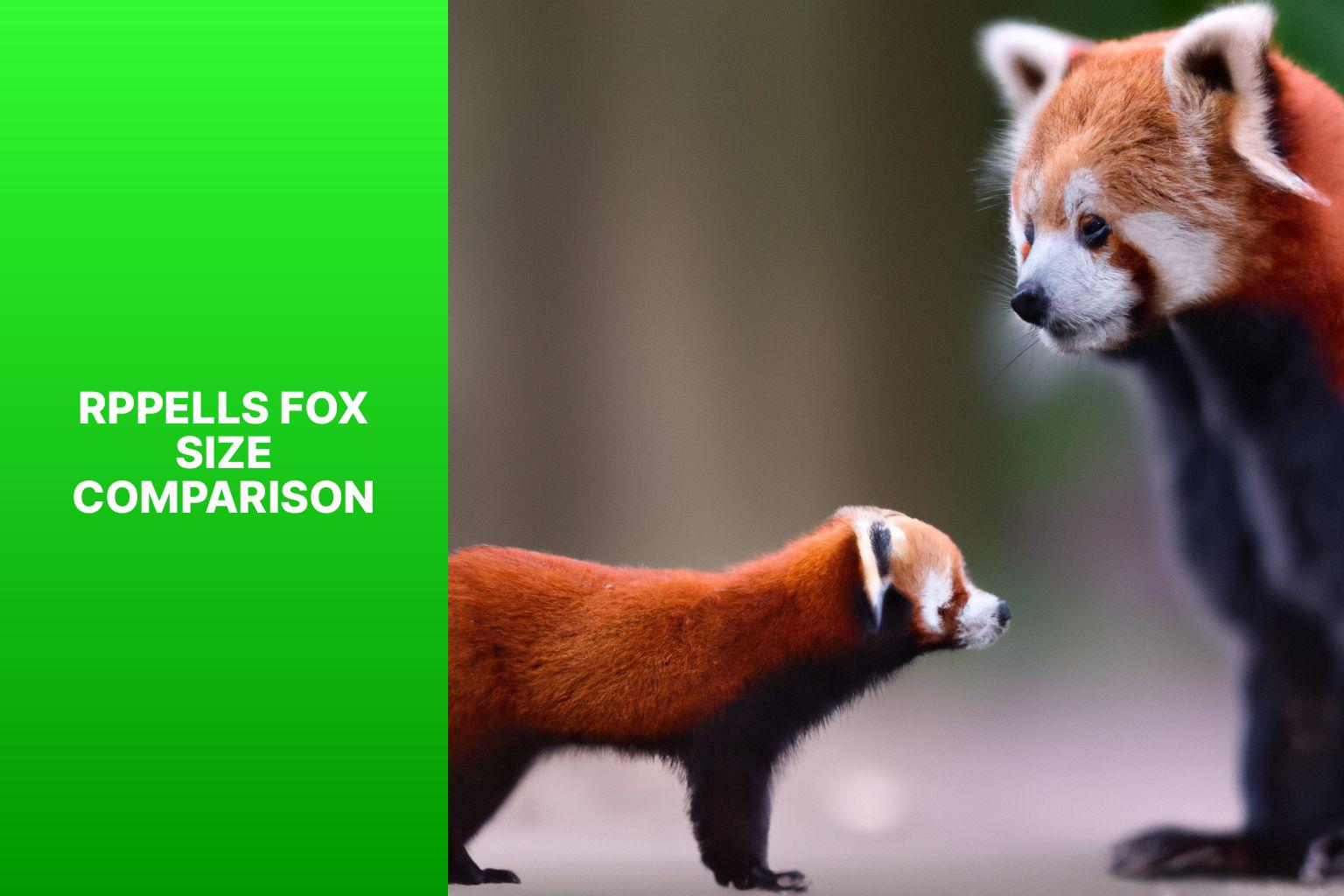Fennec Foxes are fascinating creatures that have captured the interest of many due to their unique features and behaviors. In this article, we will delve into the world of Fennec Foxes in captivity, exploring their natural habitat, behavior, and diet in the wild, as well as their role as captive animals.
Starting with an introduction to Fennec Foxes, we will learn about their physical characteristics and adaptations that allow them to thrive in arid desert environments. Moving on to their natural habitat, we will discover where these foxes can be found in the wild and the challenges they face in their native ecosystems.
Exploring their behavior and social structure, we will uncover interesting facts about their communication, mating habits, and how they interact with their fellow foxes. we will dive into their diet and hunting techniques, understanding their unique needs for survival.
Next, we will shift our focus to Fennec Foxes as captive animals. We will discuss the popularity of these foxes as exotic pets, the legal considerations and licensing requirements associated with owning them, and the ethical considerations surrounding their captivity.
Caring for a Fennec Fox in captivity requires specialized knowledge and attention. We will explore the proper enclosure and habitat requirements, the specific nutritional needs they have, and the importance of environmental enrichment to ensure their mental and physical well-being. we will address veterinary care and health considerations to ensure that they remain healthy and happy in captivity.
Keeping Fennec Foxes as pets poses certain challenges. We will delve into the specialized needs and care requirements they have, as well as the possibility of behavior problems that can arise from their captivity. Understanding these challenges will be essential for anyone considering bringing a Fennec Fox into their home.
We will discuss the ethical considerations and the role of captive breeding programs in conservation efforts. Supporting these programs and raising awareness about the conservation of Fennec Foxes in the wild is crucial to ensure the long-term survival of this species.
By delving into the world of Fennec Foxes in captivity, we hope to provide valuable insights and knowledge for those interested in these remarkable creatures.
Contents
- 1 Fennec Foxes in the Wild
- 2 Fennec Foxes as Captive Animals
- 3 Caring for a Fennec Fox in Captivity
- 4 The Challenges of Keeping Fennec Foxes as Pets
- 5 Ethical Considerations and Conservation
- 6 Frequently Asked Questions
- 6.1 1. Can fennec foxes be trained to use a scale for weight measurements?
- 6.2 2. How are fennec foxes trained during husbandry training sessions?
- 6.3 3. Are fennec foxes suitable as pets?
- 6.4 4. What are the cage requirements for keeping a fennec fox in captivity?
- 6.5 5. How do fennec foxes cope with the extreme heat of the summer sun?
- 6.6 6. What health problems are fennec foxes prone to?
Fennec Foxes in the Wild

Photo Credits: Foxauthority.Com by Kenneth White
Did you know that the fennec fox is a fascinating creature in the wild? In this section, we’ll explore their natural habitat, behavior and social structure, and their diet and hunting habits. Brace yourself for some incredible facts and discoveries about these adorable and resourceful desert dwellers. Get ready to dive into the enchanting world of fennec foxes and uncover the wonders of their untamed lifestyle!
Natural Habitat
The Fennec Fox is native to the Sahara Desert in North Africa, which is its natural habitat. It has adapted to survive in the arid and harsh conditions of this vast desert. With its bat-like ears and pale-colored coat, the fox blends in with its sandy surroundings, using camouflage to protect itself from predators and prey.
Being nocturnal, the Fennec Fox hunts for food during the cooler nights and avoids the scorching desert sun during the day. In order to endure the extreme temperatures and limited water sources, it digs extensive underground burrows for shelter.
The Fennec Fox is highly adaptable and feeds on a varied diet of small rodents, insects, birds, fruits, and vegetation found in its natural habitat. Researchers have witnessed these tiny creatures effortlessly navigating the dunes, disappearing into their burrows, and utilizing their sensitive ears to detect even the slightest movement or sound. Observing their resilience in such a challenging environment is a truly humbling experience.
Behavior and Social Structure
Fennec foxes possess a captivating behavior and an extraordinary social structure. They inhabit small groups comprising a male and female pair, along with their offspring. These groups collaborate for various activities such as hunting, defending their territory, and nurturing the young. Fennec foxes communicate through vocalizations, facial expressions, and body postures.
Understanding the behavior and social structure of fennec foxes is crucial in ensuring their well-being while in captivity. Providing them with ample space to roam, mental stimulation, and social interaction is essential. Creating an environment that mimics their natural habitat is vital for their physical and mental health.
Fennec foxes demonstrate opportunistic hunting behavior and scavenging tendencies. They primarily consume small mammals, insects, birds, and vegetation. Their acute hearing and sharp senses enable them to locate prey, even when it’s hidden underground. They dig burrows for shelter and nesting, which helps regulate their body temperature in the desert environment.
Throughout the early 19th century, fennec foxes have been extensively documented. They boast a distinctive appearance and a remarkable ability to adapt to harsh desert conditions. Their popularity in the pet trade has presented conservation challenges. Efforts are ongoing to preserve their natural habitats and promote responsible ownership through education and research. These initiatives aim to safeguard these extraordinary creatures for future generations to appreciate.
+
Diet and Hunting
Fennec foxes have a diverse diet, encompassing insects, small rodents, birds, eggs, and desert vegetation.
They excel at hunting during the night, relying on their exceptional hearing and sense of smell.
To capture prey hidden underground, they adeptly dig into sand or soft soil.
They can skillfully pounce on birds or insects mid-air.
Should you consider having a Fennec fox as a pet, it is crucial to provide a well-balanced diet that emulates their natural food sources.
Seek guidance from a veterinarian specializing in exotic animals to ensure their nutritional requirements are adequately met. It is important to understand the diet of fennec foxes in captivity, including their arctic fox diet. What do these cunning canines eat? Seek guidance from a veterinarian specializing in exotic animals to ensure their nutritional requirements are adequately met.
It is vital to offer environmental enrichment that facilitates their innate hunting behaviors, such as concealing food or providing interactive puzzle toys.
This not only keeps them mentally stimulated but also provides them with a sense of fulfillment.
Fennec Foxes as Captive Animals
Fennec foxes have gained popularity as captivating and exotic pets. Let’s explore the fascinating world of fennec foxes as captive animals, including their rising demand as pets and the legal aspects surrounding their ownership. Discover the allure and challenges of having these unique creatures in your home, while uncovering the facts and figures that underline our fascination with these beautiful creatures.
Popularity as Exotic Pets
The popularity of Fennec foxes as exotic pets is increasing due to their unique appearance and behaviors. These cute little creatures, with their large ears and expressive eyes, have gained a significant following on social media platforms. Videos and photos of them being playful and interacting with their owners have gone viral, further contributing to their popularity.
One of the reasons why Fennec foxes are sought after as exotic pets is their manageable size. Being small in size, they are suitable for domestic living environments. They require less space and attention compared to larger exotic pets, and they can be comfortably kept in well-designed enclosures without the need for extensive exercise.
Fennec foxes also possess unique characteristics that make them intriguing pets. They have the ability to jump high, excellent hearing skills, and remarkable adaptability to harsh desert environments. These traits make them even more fascinating and charismatic.
Owning a Fennec fox as an exotic pet comes with responsibilities and challenges. Potential owners should research and prepare beforehand, considering the legality and licensing requirements in their area. They should also be aware of the specialized needs and care requirements of these animals. Providing appropriate housing, a suitable diet, and environmental enrichment is crucial for the well-being and happiness of Fennec foxes kept as exotic pets. Consulting with experts and experienced owners is highly recommended to gain a better understanding of the dedication and effort required to properly care for these unique creatures.
Legality and Licensing
Legality and licensing are essential considerations when contemplating the ownership of a Fennec fox as a pet. The regulations and laws pertaining to exotic animal ownership vary depending on the specific location, whether it be your country, state, or city.
1. There is a variation in laws: The legality of having a Fennec fox as a pet is contingent upon the regulations in your area, whether it be your country, state, or city. Some places possess specific guidelines specifically for exotic pets, including Fennec foxes. Take the initiative to conduct research and familiarize yourself with the local laws and requirements.
2. Requirements for licensing: Even in regions where owning a Fennec fox is considered legal, there might be a necessity for licensing or permits. Typically, these permits are acquired from governmental bodies that oversee wildlife and control of exotic animals. The licensing process might involve inspections, fees, and providing evidence of adequate care and suitable housing for the fox.
3. Restrictions and limitations: Certain areas may have limitations on owning Fennec foxes, such as restrictions on the number of animals or specific conditions that must be met in order to keep them. Be conscious of any restrictions or limitations enforced by authorities.
4. Responsibility and accountability: The ownership of a Fennec fox demands immense levels of responsibility and commitment. It is crucial to provide the necessary care, attention, and appropriate living conditions to ensure the animal’s well-being. Responsible ownership guarantees the safety and welfare of both the Fennec fox and the community.
By comprehending the legal and licensing requirements associated with owning a Fennec fox, prospective owners can make informed decisions and avoid legal complications or harm to the animal. Always consult with local authorities and adhere to the regulations to ensure the well-being and legality of owning a Fennec fox as a pet.
Caring for a Fennec Fox in Captivity
Caring for a Fennec Fox in captivity is a rewarding and challenging journey. From providing a proper enclosure and habitat to ensuring the right nutrition and diet, there’s a lot to consider. We’ll also explore the importance of environmental enrichment and the essential role of veterinary care and health considerations. So, whether you’re a seasoned Fennec Fox enthusiast or just starting out, get ready to learn how to create a happy and healthy environment for these fascinating creatures.
Proper Enclosure and Habitat
When keeping a fennec fox as a pet, it is crucial to provide them with a suitable enclosure that meets their needs in order to create a proper enclosure and habitat. Consider the following key factors:
1. Space requirements: Fennec foxes are active animals that require ample room to move and explore. Therefore, it is recommended to have an enclosure that is at least 8 feet by 8 feet.
2. Fencing and containment: To ensure the fennec fox’s safety and prevent escape, it is essential to use high fencing that is at least 6 feet tall. The fencing should extend underground to further prevent any potential escape. Mesh wire or chain link fencing is strongly recommended.
3. Climate control: Fennec foxes thrive in hot and dry climates. It is important to provide proper ventilation and shade within the enclosure for cooling purposes. Consider including a heated area for colder months to ensure the fennec fox remains comfortable.
4. Enrichment and stimulation: To keep the fennec fox mentally and physically stimulated, it is vital to include various toys, platforms, tunnels, and hiding spots within the enclosure. This will help simulate their natural behaviors and provide much-needed enrichment.
5. Substrate and bedding: Fennec foxes have a natural digging behavior, so it is beneficial to offer sand or a specialized digging pit as part of the enclosure. Make sure to provide safe and non-toxic bedding materials for the fennec fox’s comfort.
6. Security and safety: To guarantee the fennec fox’s safety, it is crucial to ensure that the enclosure is both escape-proof and predator-proof. This will provide peace of mind knowing that your fennec fox is protected.
By incorporating these key considerations into the design of the enclosure, you can create a safe and stimulating environment that promotes the well-being and natural behaviors of your fennec fox in a proper enclosure and habitat.
Nutrition and Diet
Fennec foxes in captivity require a balanced and appropriate diet to meet their unique dietary needs. Here are some key considerations for their nutrition and diet:
1. Nutrition: It is important to ensure that fennec foxes receive proper nutrition. Feed them a high-quality commercial diet formulated for exotic carnivores. These diets provide the necessary nutrients and replicate their natural habitat.
2. Diet: Provide a variety of protein sources to meet their dietary requirements. Fennec foxes need a diet rich in animal-based proteins. Include lean meats, insects, and commercial protein supplements. This ensures they get essential amino acids for overall health.
3. Carbohydrates: It is crucial to limit carbohydrates in the diet of fennec foxes. They have low tolerance for carbs. Give them minimal amounts of fruits and vegetables mainly for enrichment and hydration purposes, rather than a significant part of their nutrition.
4. Vitamins and Minerals: Ensure that fennec foxes receive adequate vitamins and minerals for their health. They need certain nutrients like vitamin D, calcium, and phosphorus. These can be provided through commercially prepared diets or appropriate supplements.
5. Freshwater: Always provide freshwater availability to fennec foxes. This is crucial for hydration and overall well-being.
Consult a veterinarian or experienced exotic animal nutritionist to ensure that fennec foxes’ nutritional needs are met. They can provide guidance on specific dietary requirements and necessary nutritional supplements. A balanced and appropriate diet is crucial for the health and longevity of these captivating creatures.
Environmental Enrichment
Environmental enrichment plays a crucial role in promoting the well-being and health of captive fennec foxes. By providing enriching environments, we can enhance their physical and mental capabilities while preventing boredom and behavioral issues. The following key aspects of environmental enrichment for fennec foxes should be considered:
1. Structural Enrichment: It is important to offer branches, ramps, and tunnels that allow the Fennec Fox to climb and exercise.
2. Hideouts and Dens: Providing artificial burrows or hiding spots encourages the foxes to engage in understanding Fennec Fox behavior and explore their unique traits and social interactions.
3. Toys and Foraging Opportunities: Stuffed toys, puzzle feeders, and objects can be used to provide mental stimulation and encourage hunting behaviors. Feeding should be scattered throughout the enclosure to create foraging experiences.
4. Sensory Stimulation: To mimic their natural habitat, scents, sounds, and visuals from their environment should be incorporated. The use of safe plants and natural sounds, as well as monitored exposure to other animals, can contribute to their sensory stimulation.
5. Play and Social Interaction: Ensuring social interaction with conspecifics or human caretakers is crucial. Regular play sessions and supervised human interaction are necessary for providing social stimulation.
By implementing these strategies, we greatly improve the welfare of captive fennec foxes and ensure that they live enriched and fulfilling lives. Regular assessment and modification of enrichment activities based on each fox’s specific needs and preferences are essential.
Veterinary Care and Health Considerations
Veterinary Care and Health Considerations
Proper veterinary care and health considerations are crucial when caring for a fennec fox in captivity. Here are some important factors to keep in mind:
1. Regular Check-ups: Schedule regular veterinary check-ups for your fennec fox to ensure their health and well-being. An experienced exotic animal veterinarian should examine the fox at least once a year.
2. Vaccinations: Follow the recommended vaccination schedule from your veterinarian. Vaccinations protect your fennec fox from common diseases that can be harmful or fatal.
3. Parasite Prevention: Fennec foxes can be prone to parasites like fleas, ticks, and worms. Regular preventive treatments are necessary to keep them parasite-free and healthy.
4. Proper Nutrition: Provide a well-balanced diet that meets the specific nutritional needs of a fennec fox. Consult with a veterinarian or an exotic animal nutritionist for guidance.
5. Dental Care: Dental health is important for fennec foxes. Provide them with chew toys or dental treats to maintain their dental hygiene. Regular dental check-ups can identify any issues early on.
6. Temperature Regulation: Fennec foxes are adapted to desert environments and can be sensitive to extreme temperatures. Ensure their enclosure has suitable heating or cooling options to prevent overheating or hypothermia.
Remember, fennec foxes have specific care requirements, so consult with a veterinarian specializing in exotic animals for personalized advice.
Fun Fact: Fennec foxes have large ears that help them hear prey underground and regulate body temperature in hot desert climates.
The Challenges of Keeping Fennec Foxes as Pets

Photo Credits: Foxauthority.Com by Elijah Nguyen
Keeping Fennec Foxes as pets may seem enticing, but the challenges that come with it cannot be overlooked. From their specialized needs and care requirements to potential behavior problems, this section sheds light on the various difficulties one may encounter when having these adorable creatures as companions. So, before you consider welcoming a Fennec Fox into your home, explore the realities of their captivity and the responsibility it entails.
Specialized Needs and Care Requirements
Caring for a fennec fox in captivity requires meeting several specialized needs and care requirements to ensure their health and well-being. Specialized needs and care requirements include suitable housing, nutritional requirements, environmental enrichment, and veterinary care.
1. Suitable Housing: A proper enclosure for a fennec fox should be spacious, escape-proof, and have secure fencing and a solid roof. It should also include natural substrates and hiding places to cater to their specialized needs.
2. Nutritional Requirements: Fennec foxes have specific dietary needs. Their diet should consist of high-quality commercial fox food, insects, fruits, and vegetables. It is important to maintain proper portion sizes and seek guidance from a veterinarian to meet their specialized nutritional requirements for the Fennec Fox Genus.
3. Environmental Enrichment: Fennec foxes are highly active and intelligent animals, making environmental enrichment crucial for their well-being. Providing toys, tunnels, and opportunities for digging and climbing is essential to prevent boredom and meet their specialized needs for mental and physical stimulation.
4. Veterinary Care: Regular veterinary check-ups are essential for monitoring the fennec fox’s health and detecting any issues early on. Their healthcare routine should also include vaccinations, parasite prevention, and dental care to meet their specialized care requirements.
Meeting these specialized needs and care requirements will provide a suitable and enriching environment for fennec foxes in captivity. Owning a fennec fox requires responsible care and dedication, as it is a long-term commitment. It is always important to consult with experts and professionals in exotic animal care to ensure the well-being of these unique pets.
Possibility of Behavior Problems
The possibility of behavior problems is an important aspect to consider when keeping Fennec foxes as pets. Fennec foxes are wild animals with complex instincts and behaviors, which can present challenges in a domestic setting.
One potential behavior problem is excessive digging. Fennec foxes are renowned for their tendency to dig tunnels or holes in their enclosure or even in the house. By providing appropriate substrates and enrichment, it is possible to satisfy their natural digging instincts.
Another behavior issue is vocalization. Fennec foxes produce distinct vocalizations, such as barks, screams, and chirps. While these vocalizations are natural, they can be disruptive and disturb neighbors or household members. Training and socialization can help mitigate excessive vocalization.
Aggression towards other pets or humans is also a possibility. Fennec foxes may exhibit territorial behaviors or aggression if they feel threatened or stressed. Proper socialization and training from a young age can reduce the risk of aggressive behavior in Fennec Fox Paws.
Inappropriate elimination can also be a concern. Fennec foxes may mark their territory by urinating or defecating in specific areas, including indoors. Litter box training and regular cleaning are necessary to prevent this issue.
By understanding the potential for behavior problems and taking appropriate measures to address them, potential Fennec fox owners can ensure a safe and harmonious environment for both the fox and the household.
Ethical Considerations and Conservation
Captive Fennec Foxes raise important ethical considerations and concerns for conservation. Delving into the two sub-sections, we uncover the world of captive breeding programs and the crucial support given towards conservation efforts. These sub-sections shed light on the measures taken to ensure the well-being of Fennec Foxes in captivity and the steps being taken to preserve their natural habitat. Join us as we explore the delicate balance between captivity and conservation for these fascinating creatures.
Captive Breeding Programs
Captive breeding programs play a crucial role in the conservation of fennec foxes. These programs are specifically designed to increase the population of fennec foxes in captivity and eventually reintroduce them into their natural habitats.
One significant advantage of captive breeding programs is that they offer a safe and controlled environment for fennec foxes to reproduce. This controlled setting helps maintain genetic diversity and prevents the risks associated with inbreeding.
Furthermore, captive breeding programs present researchers and conservationists with a unique opportunity to study various aspects of fennec fox behavior, physiology, and reproductive patterns. By gaining this knowledge, conservation strategies can be informed and our understanding of the species can be enhanced.
Moreover, captive breeding programs also serve as a means to raise awareness and gather support for fennec fox conservation. When individuals have the opportunity to witness these magnificent creatures up close, they develop a strong connection and become passionate advocates for their protection.
Support for Conservation Efforts
Supporting conservation efforts is essential for the survival of fennec foxes in both their natural habitat and in captivity.
- Captive Breeding Programs: Conservation organizations and zoos actively participate in captive breeding programs for fennec foxes. These programs have the goal of increasing the fennec fox population and improving genetic diversity in captivity, thereby contributing significantly to the conservation of this species.
- Habitat Preservation: Conservation efforts for fennec foxes primarily revolve around the protection of their natural habitat. This involves conserving desert ecosystems and preventing habitat loss caused by urbanization, agriculture, or mining. Preserving their habitat is crucial for maintaining a sustainable environment for the species.
- Educational Programs: Conservation organizations and zoos organize educational programs to raise awareness about fennec foxes and the importance of their conservation. By informing the public about these fascinating creatures, these programs aim to generate support and drive action to conserve the species.
- Research and Monitoring: Conducting studies on the behavior, population dynamics, and ecological requirements of fennec foxes is essential for developing effective conservation strategies and management plans. Monitoring protocols offer valuable data for conservation efforts by tracking population trends and assessing habitat conditions.
- Supporting Conservation Organizations: Individuals can make a significant contribution to fennec fox conservation by supporting dedicated organizations. Donating funds or volunteering for these organizations helps in financing research, habitat preservation initiatives, and captive breeding programs, directly contributing to the conservation of fennec foxes.
By actively expressing support for these conservation efforts, we can ensure the long-term survival and well-being of fennec foxes.
Frequently Asked Questions
1. Can fennec foxes be trained to use a scale for weight measurements?
Yes, fennec foxes can be scale trained to voluntarily step onto a scale for weight measurements. This allows their keepers to monitor their weight and overall health.
2. How are fennec foxes trained during husbandry training sessions?
During husbandry training sessions, fennec foxes are target trained. This means that they are trained to follow a target, which allows keepers to position them for examinations and move them between exhibits. Training sessions also help build a bond between keepers and the foxes.
3. Are fennec foxes suitable as pets?
No, fennec foxes are not suitable as pets. They have specialized care requirements, including a native desert environment, and can be difficult to house train. Their territorial nature also makes them unsuitable as household pets.
4. What are the cage requirements for keeping a fennec fox in captivity?
Fennec foxes require a large cage that provides space for jumping, running, and enrichment. The cage should be kept warm and include bedding, toys, cage accessories, and a litter box. Outdoor enclosures should have secure walls and a soft sand or dirt floor.
5. How do fennec foxes cope with the extreme heat of the summer sun?
Fennec foxes are adapted to live in the desert and cope with the extreme heat by staying inside burrows during the day. Their thick, sandy-colored coat helps dissipate excess heat, and their large ears help to dissipate heat and listen for prey underground.
6. What health problems are fennec foxes prone to?
Fennec foxes are prone to health problems such as kidney, liver, and heart disease, as well as skin infections and intestinal parasites. They require routine veterinary care, including vaccinations and preventative treatments, to maintain their overall health.


